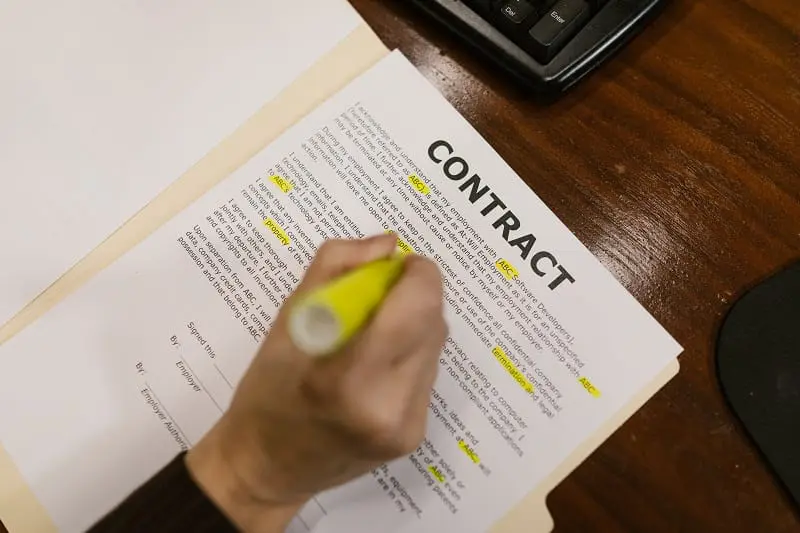Selling an HVAC business is complex. There is so much paperwork and business jargon, and you have yet to decide if you should have your employees sign a non-compete agreement. What are the pros and cons of a non-compete? Different states may have slightly different laws regarding non-competes, but non-compete agreements can offer you leverage and value when selling your business.
What is a Non-Compete Agreement?
Generally, a non-compete agreement is a contract used in various businesses that prohibits employees from working for a competitor of their current employer for a certain period. When selling an HVAC company, non-competes ensure the seller doesn’t compete against the new owner in any way.
Non-competes are in place to help retain business relationships and employees while also ensuring employees don’t tarnish their past employer’s reputation or divulge confidential information. It also eliminates the chance of past employees starting their own business in the same industry using the trade secrets and other private information they learned from their former employer.
What Does a Non-Compete Agreement Typically Include?
Non-competes usually have specifics written in them regarding each business and employer. The specifics will have to do with the HVAC industry, and the information can vary from company to company.
However, each non-compete must adhere to the state law’s specific limitations. If you have an HVAC business broker helping you sell or buy a business, they can help you.
Here are seven parts to expect in a non-compete agreement:
1. The Scope of the Agreement
The scope of the agreement should be short and sweet. This clause will typically outline the specific work restricted if leaving the current employer and any products or services concerning that work.
There can’t be too many restrictions in this clause. Prohibiting too many things could even lead to a legally voided non-compete.
2. Geographical Limitations
This clause is essential and prevents employees from leaving to open a business across the street from you.
However, you can’t get too crazy with geographical limitations. Geographical limitations outlined in the contract should only extend locally to the region wherein your company currently does business.
3. A Definition of Competition
While this clause is less standard than the others, it’s more common than most people think. A non-compete agreement should outline its exact competitors to make things clear as day. This doesn’t mean all competitors have to be named individually, but rather an explicit description of what types of HVAC businesses employees cannot seek employment from.
4. The Consequences
There will likely be a clause detailing the consequences of violating the terms of the non-compete agreement. For instance, should an employee violate their non-compete contract, should the current employer be entitled to something?
5. The Time Frame of the Agreement
Luckily, non-competes don’t last forever. There should be a clear time frame outlined in this clause stating a date on which the clause is no longer in effect. The length of time should give the new owner enough time to get in a groove and get accustomed to the operations and other relevant industry variables.
A fair time frame for small HVAC businesses is often two to five years–trying to push the time frame longer than that would be unfair to the outgoing business owners.
6. Interaction Restrictions with Former Employees and Customers
One of the many perks of running a small HVAC business is all the connections and relationships you cultivate. Small companies often have their core loyal customers who love to support them.
This, of course, is a significant concern for business buyers. They want the former owner to refrain from using their influence to bring their loyal customers and employees with them. This clause often contains tight restrictions on hiring former employees and contacting previous customers.
However, these limitations don’t apply both ways. You have the right to challenge any clause restricting all forms of the employment relationship, such as employee-initiated contact. U.S. employment laws allow people to pursue any opportunities that could result in a job.
7. Prohibitions on Disclosing Confidential Information
When transferring ownership, a prospective buyer will look for ways to protect themselves from potential future misuse of assets they’ll soon acquire. This entails confidential information, copyrights, trade secrets, patents, trademarks, etc. To keep everything classified, the buyer could include a non-disclosure agreement in the non-compete agreement to discourage the seller from leaking sensitive information to outside entities.
The restrictions also stop former business owners from leveraging intellectual property. That means barring them from using them for business benefit. This type of clause doesn’t typically have a time frame. The contract enforces them permanently.
The Importance of Non-Competes
- They increase a business’s value
- They protect confidential information
- They protect customer relationships
- They keep an even playing field among competitors
A non-compete agreement can add value in many ways, whether selling or buying an HVAC business. As the seller or buyer, you should familiarize yourself with the complexities of non-compete agreements and how they work. It may benefit you to seek help to understand the legalities with non-competes and stay on the safe side. You don’t have to hire a fancy law firm; instead, consider linking up with a professional HVAC broker specializing in business sales.







